This article contains spoilers for Guardians of the Galaxy Vol. 3 in its discussion of an MCU movie that offers a genuine end.
There is a lovely moment towards the end of Avengers: Age of Ultron, in which Vision (Paul Bettany) and Ultron (James Spader) consider the merits of mankind. “They’re doomed,” Ultron opines. Vision agrees but argues that this isn’t the point. “Yes,” he concedes. “But a thing isn’t beautiful because it lasts.” It’s a nice moment, one that underscores the value of finite things and celebrates the importance of endings. It’s a key moment in the evolution of the Marvel Cinematic Universe (MCU).
Age of Ultron is a movie about the fundamental tension that exists between the “perpetual now” of comic book stories that can run for decades featuring the same characters and the production constraints of film and television where time cannot be cheated or evaded. In comic books, Peter Parker can be Spider-Man in perpetuity. In a major movie franchise, Tom Holland is inevitably going to age out of the role and want to do new things.
Of course, it’s a grim irony that so much modern pop culture — from the computer-generated Luke Skywalker (Mark Hamill) in The Mandalorian and The Book of Boba Fett to the nostalgia porn of the third season of Star Trek: Picard — is about rejecting the idea of impermanence. Advances in special effects and contempt for the basic laws of narrative are pushing towards a future where these characters and their stories can remain frozen in time forever.
As such, it’s heartening when a major franchise acknowledges the truth in Vision’s statement, that an ending is an important part of the larger story. Sadly, these examples are few and far between: Christopher Nolan’s The Dark Knight Rises, James Mangold’s Logan, Chad Stahelski’s John Wick: Chapter 4, even arguably Cary Joji Fukunaga’s No Time to Die all stand out from the modern franchise perpetual motion machines by allowing their characters the dignity of a resolution.
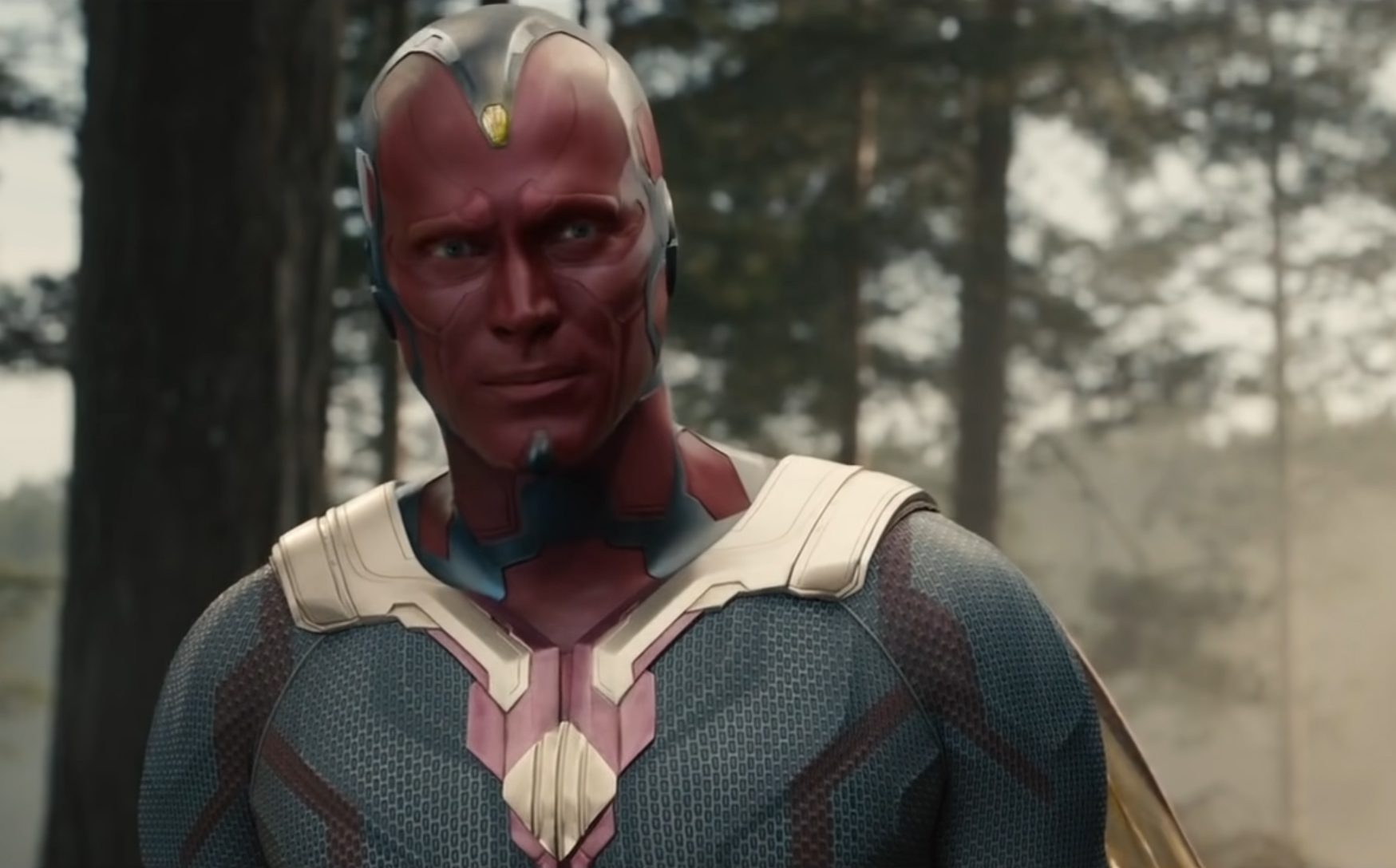
Guardians of the Galaxy Vol. 3 is a worthy addition to that short list, and it’s notable as perhaps the only example from the MCU. As the title suggests, it is the third film in the Guardians of the Galaxy franchise, allowing for The Guardians of the Galaxy Holiday Special. It will be James Gunn’s final film as part of the shared universe, with the director moving to rival studio Warner Bros. to oversee its DC slate. It is the end of an era.
Many members of the cast have signaled that this will also be their final film playing these characters. “I don’t think this is the end for the Guardians,” conceded Zoe Saldaña. “It is the end for me, for Gamora.” Dave Bautista has stated that he is so happy with the movie’s resolution that he “would never go back and tarnish that.” Pom Klementieff has made it clear that she is done if Gunn is done, explaining, “I can’t imagine playing Mantis with someone else writing the words.”
Of course, plenty of actors have departed the MCU. However, these departures tended to come in gigantic crossovers, with Steve Rogers (Chris Evans), Tony Stark (Robert Downey Jr.), and Natasha Romanoff (Scarlett Johansson) all wrapping up their arcs in Avengers: Endgame, a gigantic crossover with plenty of other plot threads in the air. Watching Endgame, there is a sense that it is only the end for these characters because the performers’ contract expired, not because it’s an organic choice.
More to the point, there is a sense in which these resolutions are impermanent and subject to negotiation. Scarlett Johansson finally got to headline her own solo movie with Black Widow after her character had died in Endgame. There are persistent rumors that Chris Evans will reprise the role of Steve Rogers. There is also some speculation that Armor Wars was converted from a streaming series to a feature film to allow for a cameo from Downey.
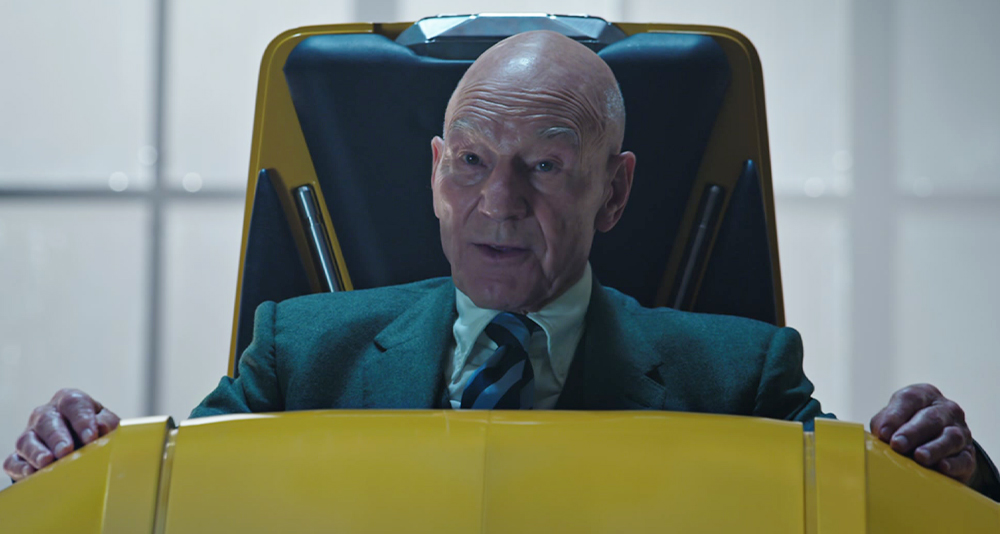
Evans and Downey may never return to the MCU. However, it says a lot about the nature of modern franchises that these rumors continue to circulate. Among the first things that Marvel Studios did upon taking back the X-Men license from Fox was to bring back Patrick Stewart as Charles Xavier in Doctor Strange in the Multiverse of Madness and to announce that Hugh Jackman would reprise his role as Wolverine in Deadpool 3, even after both actors had moving death scenes in Logan.
Guardians of the Galaxy Vol. 3 is an elegiac film. More than other Marvel Studios trilogy cappers, including Iron Man 3, Captain America: Civil War, Thor: Ragnarok, and Ant-Man and the Wasp: Quantumania, it functions as an ending for these characters. Appropriately enough for a film franchise defined by its soundtrack and where the sequels are even named to evoke album titles, Guardians of the Galaxy Vol. 3 ends by breaking up the band. “The group is over,” as Rocket succinctly states.
Unlike Logan, No Time to Die, or John Wick: Chapter 4, Guardians of the Galaxy Vol. 3 doesn’t kill off its characters to provide them with an ending. Gunn’s ending is very much in line with Christopher Nolan’s humanist conclusion to The Dark Knight Rises, built around the understanding that these characters have done and given enough, that they and the production team have earned the dignity of stepping out of the spotlight instead of being stuck on a nostalgia treadmill.
The Guardians go their separate ways. Rocket (Bradley Cooper, Sean Gunn) leads a new version of the team, including Groot (Vin Diesel), Cosmo (Maria Bakalova), Kraglin (Sean Gunn), and Adam Warlock (Will Poulter). Nebula (Karen Gillan) takes charge of Knowhere. Gamora (Saldaña) continues adventuring with the Ravagers. Mantis (Klementieff) leaves to find herself. Drax (Bautista) embraces being a dad rather than a Destroyer. Peter Quill (Chris Pratt) returns to Earth to reunite with his grandfather (Gregg Henry).
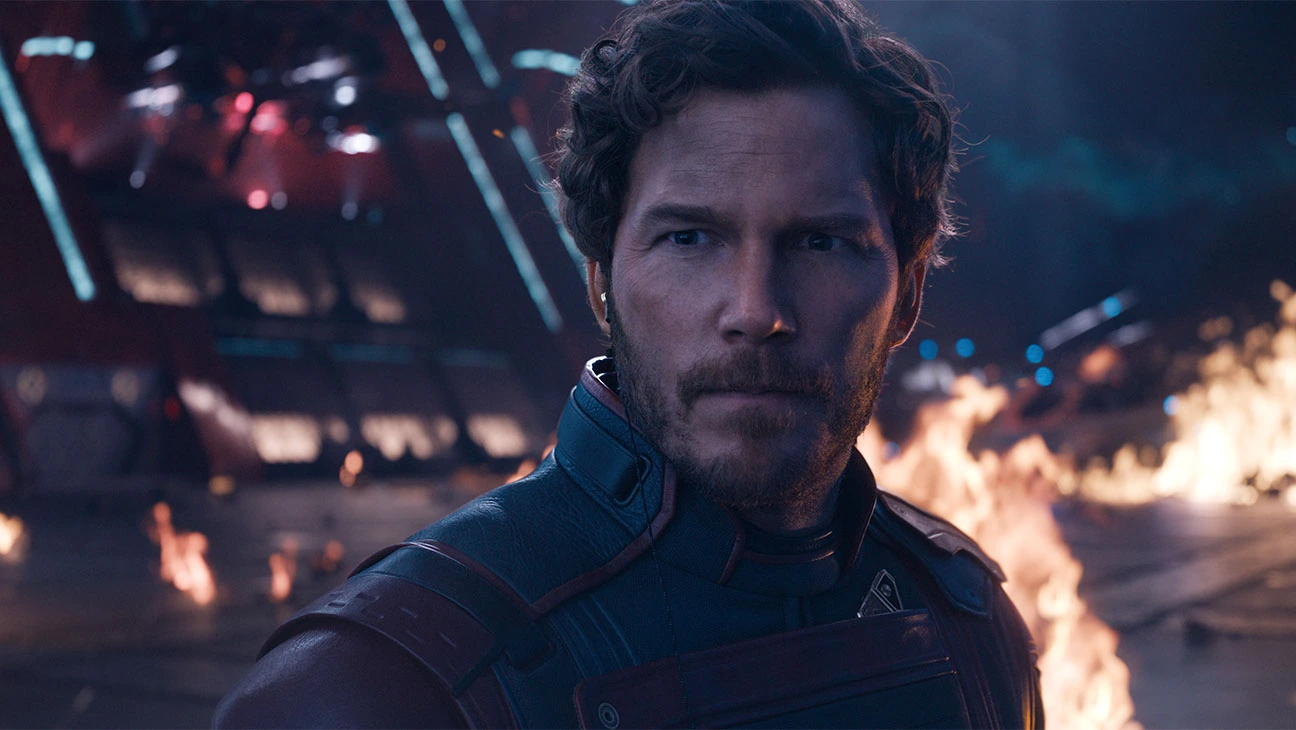
All of these characters have fundamentally changed over the course of the franchise. This is made literal in terms of Groot’s shifting physical appearance over the course of the various films, but it’s also reflected in a more profound way. Even Gamora, who was killed by Thanos (Josh Brolin) in Avengers: Infinity War and returned as an earlier version of herself with no memory of the first two films, fundamentally changes over the course of Guardians of the Galaxy Vol. 3.
In some ways, Guardians of the Galaxy Vol. 3 is explicitly about this. The film is a none-too-subtle metaphor for the push and pull that exists between Gunn’s efforts to imbue his characters with humanity and the studio’s understanding of these assets as nothing more than valuable intellectual property that boosts the larger brand. However, Guardians of the Galaxy Vol. 3 also feels like it’s in conversation with larger challenges facing the shared universe.
The MCU is in a challenging place. The specter of “superhero fatigue” looms large over the studio’s recent releases, which have struggled to connect with both audiences and critics in the same way that earlier films did. The company’s troubled Phase 4, which followed the smash successes of Infinity War and Endgame, could often feel like a midlife crisis for the brand, as the larger franchise struggled with how best to acknowledge the passage of time and the shifting of culture.
It all comes back to that conversation between Vision and Ultron in Age of Ultron and the question of what gives anything value. So much of the modern MCU seems obsessed with attempts to preserve the franchise’s place at the center of popular culture, to maintain the dominance that the brand held with Infinity War and Endgame. This panic is obvious in the studio’s somewhat desperate attempts to turn sequels like Multiverse of Madness and Quantumania into zeitgeist-defining hits.
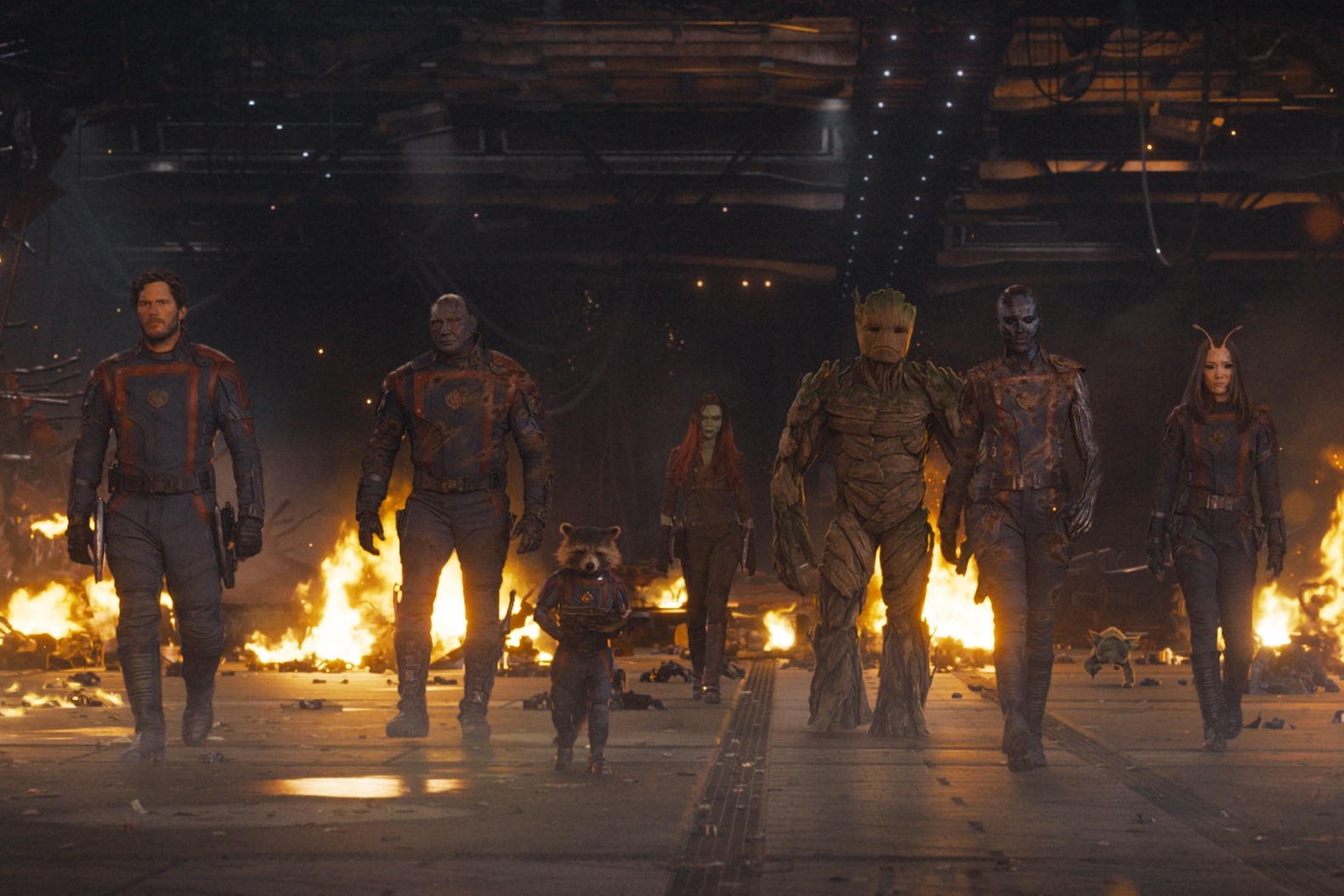
There is a dignity in how Guardians of the Galaxy Vol. 3 takes the opposite approach. This is a movie built around the understanding that — despite what Disney might want — it cannot be 2019 forever. As Baron Mordo (Chiwetel Ejiofor) notes in Doctor Strange, “The bill comes due.” It is a fact of life and a law of nature. Time waits for nobody. Every story comes to an end. Guardians of the Galaxy Vol. 3 is the first Marvel Studios film to truly and fundamentally understand (and celebrate) this.
Of course, Guardians of the Galaxy Vol. 3 can only go so far before the studio machine pushes back. The film’s final post-credits scene ends with a promise that Peter Quill will return. Disney will inevitably coax Pratt back, even if he hasn’t already extended his contract. Despite earlier interviews acknowledging that “the franchises are over” and talking about the film as “last day of school when you’re a senior,” the actor has conceded that he sees “mileage left in the character.”
Still, there’s a world of difference between the ending of Guardians of the Galaxy Vol. 3 and that of Endgame. Even as it said farewell to Stark and Rogers, Endgame assured audiences the adventure would continue, teeing up future projects like The Falcon and the Winter Soldier, Loki, and Thor: Love and Thunder. As early as July 2019, just months after Endgame premiered, Kevin Feige confirmed that the Avengers franchise would endure; the next two sequels have since been announced.
Allowing for Peter Quill’s promised return, there remains something special about Guardians of the Galaxy Vol. 3. Just as Stewart’s appearance in Multiverse of Madness and Jackman’s return in Deadpool 3 could not rob Logan of its power, Guardians of the Galaxy Vol. 3 will always stand apart from the rest of the MCU. While it ends with the establishment of a new team of Guardians led by Rocket, there’s little sense that their adventures will be depicted on screen with the same cast.
Guardians of the Galaxy Vol. 3 feels like an epitaph for the MCU as a dominant cultural force, both in the sense that it’s a film about the challenges of crafting something individual within a framework designed to mine intellectual property and in the way that it accepts the inevitability of endings as something that can’t be cheated by alternate-universe cameos or time travel shenanigans. Gunn’s Guardians of the Galaxy gets to go out on its own terms. It’s a beautiful thing.

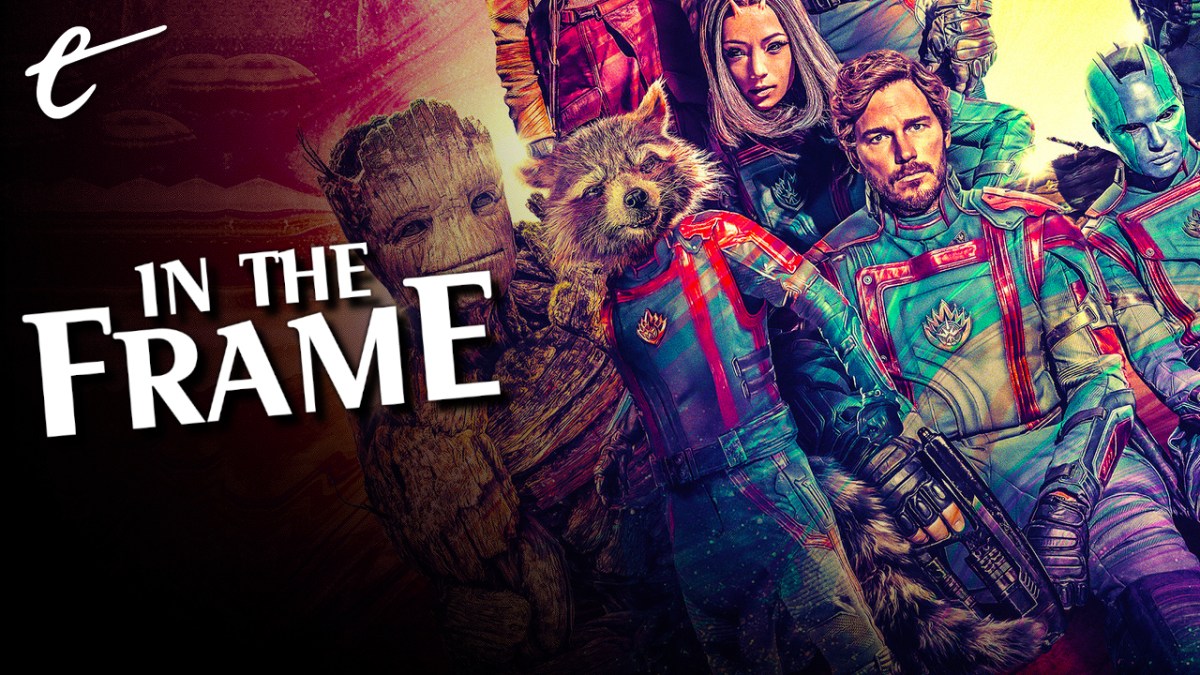




Published: May 8, 2023 11:00 am